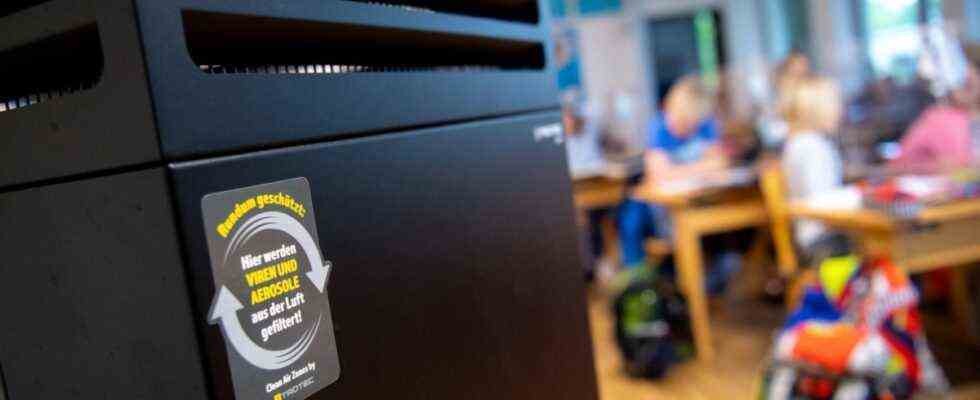Will there be another change of classes or even closed schools in September for the new school year? This is a question that worries students, parents, teachers and the communities. Because the corona virus with its highly contagious delta variant is spreading rapidly. With more vaccinated students and mobile air filters, which the Free State subsidizes up to 50 percent, schools and daycare centers should definitely remain open. But many mayors shy away from the high costs of the ventilation devices and so far do not know how this plan can be implemented in good time.
Unfortunately, there are still many unanswered questions, says Starnberg District Administrator Stefan Frey (CSU), who put the explosive topic on the agenda of the mayor’s service meeting on July 21. The actual use of the devices, which are intended to significantly reduce the virus load in the rooms, has been controversial among experts, according to Frey. Because of the procurement law, it is also “unrealistic to be able to equip all rooms with the devices in time for the new school year”.
The exact standards have apparently not been clarified either. Gilching’s mayor Manfred Walter (SPD) asks himself which devices with which technology can be purchased in the Europe-wide tender. Since ventilation systems would also have to be installed in a number of daycare centers in Gilching, Walter reckons that his community would have to raise at least 500,000 euros. But the Green Group is putting pressure on it and believes it is essential to purchase suitable air purifiers as an “important component of the hygiene plan for schools and daycare centers”. It is about the “duty of care”, warns the Greens parliamentary group leader Diana Franke. The director of the Christoph-Probst-Gymnasium, Peter Meyer, also has this in mind. 20 classrooms and six halls should have ventilation systems, he says.
The local councils in Gilching and Gauting will deal with the topic next Tuesday. In the commune on the Würm it is about 170 classrooms and costs of around half a million euros. They now want to take part in a pilot test at the Munich University of Applied Sciences, in which a certain device is tested in the classroom of a primary school for six months, says Gauting’s mayor Brigitte Kössinger (CSU). The director of the Otto-von-Taube-Gymnasium, Sylke Wischnevsky, is hoping for air filter systems in classrooms. The parents’ council is very interested in it, she says.
This also applies to parenting at the Starnberg elementary school. The children should be able to go to school safely without having to freeze in the cold despite thick jackets and hats and possibly getting sick with the windows open, “because there are no air filters in the rooms,” explains Marc Thallmair, deputy chairman of the parents’ council. One sees things differently in Herrsching: There the local council had already spoken out against the purchase of the devices last winter: “Because it was said that ventilation still had to be done and it was unclear what the devices really would do,” says Mayor Christian Schiller. But he firmly reckons that all municipalities will have to purchase such devices, and Herrsching would then have costs of 100,000 euros: “And then a year later we will have a lot of electronic waste because nobody wants it anymore.”
In the meantime, the Federal Environment Agency has described the use of mobile air filters in rooms with limited ventilation options as “sensible”. If suitable devices are properly positioned, they can be used effectively to “minimize the likelihood of indirect infections,” the authorities say.
Nevertheless, the main committee of the municipality of Pöcking decided that a proven benefit of the filter devices must first be checked by experts. “We don’t want to blow the money into the air,” says community leader Sven Neumann. Pöcking has initially estimated 60,000 euros for the room air purifier.

